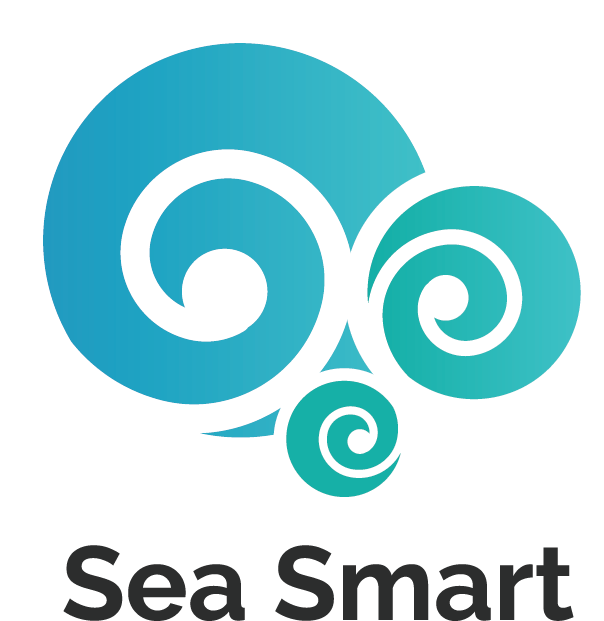World Water Day
By Willow Beck, Project and Administrative Coordinator, Sea Smart
Sea Smart is dedicated to educating others about the importance of marine ecosystems. At the same time, we strive to emphasize the interconnectedness of all ecosystems, especially the closely tied dynamics of freshwater and marine systems. If the oceans are the heart of the global ecosystem, freshwater systems are the veins. On March 22 we're celebrating World Water Day - an annual United Nations observance that focuses on the importance of freshwater.
2 students having fun during a shoreline cleanupSea Smart is dedicated to educating others about the importance of marine ecosystems. At the same time, we strive to emphasize the interconnectedness of all ecosystems, especially the closely tied dynamics of freshwater and marine systems. If the oceans are the heart of the global ecosystem, freshwater systems are the veins. On March 22 we're celebrating World Water Day - an annual United Nations observance that focuses on the importance of freshwater.
Our programming is directly related to protecting our water resources and supporting the goals of World Water Day. In February and March, we were able to deliver 15 shoreline cleanups with schools around Metro Vancouver. Many of these cleanups focused on areas along the Fraser River. Over 1000 participants were able to remove 7890 cigarette butts and 422 kg of garbage!
Water and Climate
This year the theme of World Water Day is climate change. Specifically, using our precious freshwater resources more efficiently. Climate change increases the frequency and severity of extreme weather events that result in water scarcity, unpredictability, and pollution. So, more efficient water usage will contribute to the reduction of greenhouse gases in the atmosphere and reduce the risk of water-related natural disasters.
Like the ocean, freshwater habitats act as carbon sinks. Wetlands soak up carbon dioxide from the air, peatlands store twice as much carbon as forests (while only covering about 3% of the world’s land surface), and mangrove soils sequester 3-4 times more carbon than terrestrial soils (1). These ecosystems also act as natural buffers to flooding and erosion. Protecting these ecosystems is essential to climate change mitigation and sustainable freshwater management.
Classes join Sea Smart for a beach cleanupToday, an estimated 2.2 billion people live without access to safe water (2). As the global population grows, so does the demand for water. Implementing sustainable water management practices such as storing rainwater for dry periods, reusing wastewater, and using conservation agriculture to improve soil organic matter (needed for soil to retain water) are all methods of allocating water resources in a climate-resilient way.
Everyone Has A Role To Play
We all have the power to make a difference. Small changes to daily habits accumulate and amplify across communities. Here are some actions individuals can take to help conserve water:
Take a five-minute shower
Choose a plant-based meal
Turn off sleeping tech (90% of power generation is water-intensive)
Shop sustainably (a typical pair of jeans takes 10 000 L of water to produce - that’s the equivalent of 10 years of drinking water for one person)!
Participate in a shoreline cleanup!
Thanks for reading this week’s blog post. If you’ve been feeling a bit anxious these days, try reading our blog post about the oceans and mental health!
References
UN Policy Brief on Climate Change and Water. July 12, 2019. Retrieved from https://www.unwater.org/publications/un-water-policy-brief-on-climate-change-and-water/.
Water and Climate Change: What Do We Mean? N.d. Retrieved from https://www.worldwaterday.org/learn.



